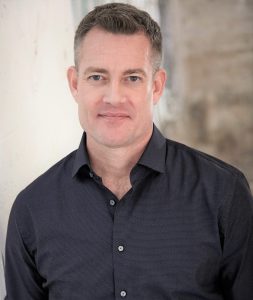
Matt Brim is Professor of Queer Studies at the College of Staten Island and the Graduate Center, City University of New York. His research explores the problems of academic elitism and the unequal distribution of resources across the university world, focusing on Queer Studies as a field that both reproduces and disrupts class stratification and race sorting. He is author of Poor Queer Studies: Confronting Elitism in the University and James Baldwin and the Queer Imagination, and he is coeditor of Queer Precarities in and Out of Higher Education, Queer Sharing in the Marketized University, and Imagining Queer Methods. Brim is Executive Director of CLAGS: The Center for LGBTQ Studies, the first university-based LGBTQ research center in the U.S. He received his Ph.D. in English from Indiana University and his B.A. from Wabash College.

Chris Dowdy is the Larry James Fellow at Forest Forward, conducting independent research on and advocacy for the struggle against poverty. He has previously served as Vice President of Academic Affairs at Paul Quinn College in Dallas, Texas — America’s first Urban Work College and the oldest Historically Black College west of the Mississippi River. As chief academic officer, he facilitated the implementation of the Reality-Based Education model and the integration of the Work College program into the curriculum. He received his Ph.D. in Religious Studies from Southern Methodist University in 2013 and began his work at PQC as Special Assistant to the President in August of 2014. His research focus is on redress for historical injustice, and he is the author of articles on lynching memory and mercy, as well as projects in the digital humanities.

Chris Gilliard is a writer, professor and speaker. His scholarship concentrates on digital privacy, and the intersections of race, class, and technology. He is an advocate for critical and equity-focused approaches to tech in education. He is currently a Just Tech Fellow at the Social Science Research Council. His work has been featured in The Chronicle of Higher Ed, EDUCAUSE Review, Fast Company, Vice, Wired and The Atlantic.
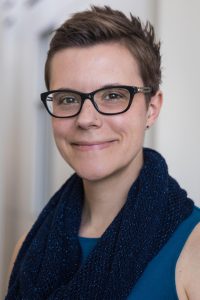
Laura Hamilton is Professor and Chair of Sociology at the University of California, Merced. Broadly, her interests include higher education, organizations, social class, gender, intersectionality, family, and mixed research methods. Hamilton earned her M.A. and Ph.D. in sociology from Indiana University in 2003 and 2010, respectively, and her B.A. in sociology from DePauw University in 2001. She is co-founder of the DataHub and the Higher Education Race & the Economy (HERE) Lab with colleague Charlie Eaton. Hamilton is the author of Paying for the Party: How College Maintains Inequality, equally-authored with Elizabeth A. Armstrong, Parenting to a Degree: How Family Matters for College and Beyond, and Broke: The Racial Consequences of Underfunding Public Universities, equally-authored with Kelly Nielsen.
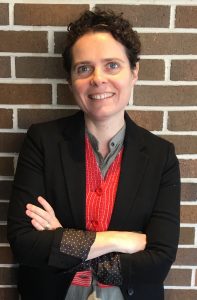
Dr. Laura Heffernan is Associate Professor of English at the University of North Florida in Jacksonville. Her research focuses on twentieth century literature and the history of pedagogy in higher education, which has been supported by an ACLS fellowship. Dr. Heffernan is the incoming director of UNF’s new Digital Humanities Initiative, where she has played a lead role in building partnerships with local archivists, historical societies, high schools, and community groups. She is Director of Operations for the Jacksonville chapter of the AAUW’s Younger Women’s Task Force and serves on as Chair of Interdisciplinary Approaches on the Executive Committee of the Modernist Studies Association.

Jim Lovelace ’79 is a Senior Vice President and portfolio counselor of Capital Research Global Investors, a division of Capital Research and Management Company, with responsibilities for The Investment Company of America (ICA), Capital Income Builder (CIB), American Mutual Fund, and American Funds Insurance Series – Blue Chip Income and Growth. Jim is also Vice Chairman, Principal Investment Officer, and a Director of CIB; Vice Chairman, Co-Principal Investment Officer and a Director of ICA; Principal Investment Officer of the American Funds Target Date Retirement Series; and a Senior Vice President of AMF. Professionally, Lovelace is a Chartered Financial Analyst and a member of the Los Angeles Society of Financial Analysts and the AIMR. Philanthropically, he serves on the Boards of the California Institute of the Arts, the Idyllwild Arts Foundation, Swarthmore College and the Pardee RAND Graduate School. Lovelace holds a bachelor’s degree in philosophy from Swarthmore College.
 John Marx is Professor of English at UC Davis and Vice Provost for Academic Planning, Aggie Square as of 2022. He is the academic lead on a team bringing to fruition a 25-acre innovation campus in Sacramento. Marx has served in numerous leadership roles for more than a decade, including Interim Vice Provost and Dean for Undergraduate Education in 2022-23, Interim Director of the University Writing Program and Writing Center starting in 2021, and Chair of the Department of English 2016-21. A member of several editorial boards and journals, Marx currently serves as Associate Editor for the academic journal Novel: A Forum on Fiction. He is the author of Media U: How the Need to Win Audiences Has Shaped Higher Education, The Modernist Novel and the Decline of Empire and Geopolitics and the Anglophone Novel, 1890-2011. He also was an American Council of Education Fellow from 2018-19. Marx earned both a Ph.D. and a master’s degree in English literature from Brown University and a bachelor’s degree from the Gallatin School of New York University.
John Marx is Professor of English at UC Davis and Vice Provost for Academic Planning, Aggie Square as of 2022. He is the academic lead on a team bringing to fruition a 25-acre innovation campus in Sacramento. Marx has served in numerous leadership roles for more than a decade, including Interim Vice Provost and Dean for Undergraduate Education in 2022-23, Interim Director of the University Writing Program and Writing Center starting in 2021, and Chair of the Department of English 2016-21. A member of several editorial boards and journals, Marx currently serves as Associate Editor for the academic journal Novel: A Forum on Fiction. He is the author of Media U: How the Need to Win Audiences Has Shaped Higher Education, The Modernist Novel and the Decline of Empire and Geopolitics and the Anglophone Novel, 1890-2011. He also was an American Council of Education Fellow from 2018-19. Marx earned both a Ph.D. and a master’s degree in English literature from Brown University and a bachelor’s degree from the Gallatin School of New York University.
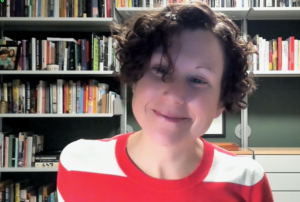
Shannon Mattern is the Penn Presidential Compact Professor of Media Studies at Art History at the University of Pennsylvania. From 2004 to 2022, she served in the Department of Anthropology and the School of Media Studies at The New School in New York. Her writing and teaching focus on media architectures and infrastructures and spatial epistemologies. She has written books about libraries, maps, and urban intelligence; she serves as president of the board of the Metropolitan New York Library Council; and she contributes a column about urban data and mediated spaces to Places Journal.
You can find her at wordsinspace.net.
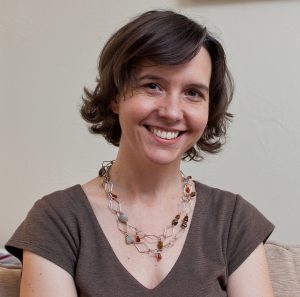
Laura McGrane is Director of Visual Culture Arts and Media and Associate Professor of English at Haverford College. She received her PhD from Stanford University and MSc from the University of Oxford and researches eighteenth-century print culture and digital media, integrating theoretical work on interface and coding into scholarship on the history of the book. She is PI for $2M in interdisciplinary grants, including Mellon-funded programming for Visual Studies and Philadelphia Creative Collaboratives. She also oversees staffing for the Haverford Innovation Program (HIP) and the VCAM Maker Arts space. She serves as the District 4 (Pennsylvania, New York) Rhodes Secretary and is a regular workshop leader on issues of collaborative technology across the humanities and sciences in liberal arts education.
